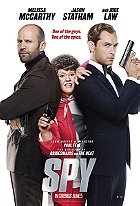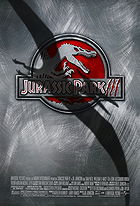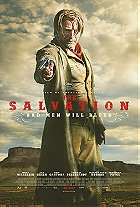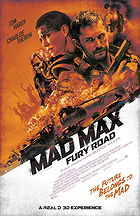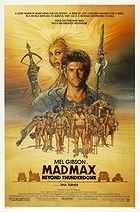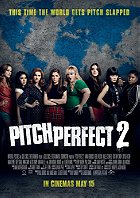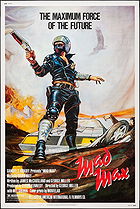One supposes that 2015's Survivor was initially intended for bigger things. With veteran action director James McTeigue (V for Vendetta, Ninja Assassin) at the helm and a cast that features the likes of Milla Jovovich and Pierce Brosnan, one must wonder if the feature might have been originally targeted for a decently-marketed theatrical run. Seeing the finished product, though, it's obvious why it's being dumped in only a handful of theatres. Written by first-time feature film scribe Philip Shelby, Survivor clearly wants to be taken with a straight face, but cooks up far too much narrative ludicrousness to achieve this goal. Moreover, it doesn't even manage to deliver as a B-movie, with minimal action scenes and very little in the way of fun. McTeigue was apparently asleep throughout filming, as the pacing is flat, the action is mundane, and the performances are blank. Perhaps unsurprisingly, Survivor came from the tired mills of Nu Image/Millennium Films and was produced by the likes of Avi Lerner and Boaz Davidson. Did anyone expect quality?

At the United States Embassy in London, Kate (Jovovich) handles the distribution of visas. Upon meeting Dr. Emil Balan (Roger Rees), a few suspicious details stick out to Kate, who begins an investigation that provokes an unexpectedly hostile response from government officials. Despite support from her boss (Dylan McDermott), Kate is pushed out of the job and is soon marked for death when an expert assassin known as The Watchmaker (Brosnan) is assigned to take her out. Kate narrowly avoids death in a bombing intended to finish her off and becomes framed for both the bombing and the subsequent murder of her boss. With the government and her former colleagues trying to track her, and with The Watchmaker prowling around, Kate takes it upon herself to find out what Balan is actually up to.
Due to The Watchmaker's presence, Survivor could have been a smart action-thriller similar to Michael Mann's Collateral, but McTeigue and co. are not sophisticated enough. This should be a sizzling white-knuckler beset with plot twists, especially with a story as labyrinthine as this, but the film boils down to a lot of computer screens and running around whilst we observe the bad guys doing evil things. Thus, there's no mystery here - no tension or suspense to transform the picture into a heated nail-biter. And no amount of overzealous music or repetitive chase scenes can change that. It doesn't help that the screenplay is all over the shop, with verbose exposition and inconsistent characters (James D'Arcy just disappears into the final third). Plus, the fact that Kate is stymied by her boss in the first five minutes openly telegraphs the only twist there is (I think?). Speaking of Kate, she turns into action hero extraordinaire, able to outrun cops and fight trained professionals. It's such a tangible girl power trip that one cannot help but facepalm as she sets off to kill the bad guys alone as if she were Rambo's daughter.

For whatever reason, Survivor is a PG-13 endeavour when the material would be a better fit for an R-rated actioner. Firearm wounds are hilariously underplayed, people expire off-screen, and the movie can never quite find the hard-edged tone that it searches for. Since the movie debuted via on-demand services (and maybe two cinemas), the choice to go PG-13 is really bewildering. Not that excessive violence would've improved the movie much, but at least it might've been a bit more fun. Although Survivor admittedly looks a bit more cinematic than your typical DTV outing, McTeigue is unable to truly bring the material to life, which can probably be attributed to slipshod scripting and the predominantly Bulgarian locations. Indeed, the movie was shot on the cheap in dull areas around Bulgaria, and it shows - no amount of polish can compensate for this. If the reported $20 million budget is accurate, 99% of it clearly went to the actors.
Brosnan's utmost professionalism is a given at this stage, with the aging actor an ideal pick for this assassin role. He gives off a steely, cold demeanour, and you can definitely buy him as the bad guy, but The Watchmaker is the most incompetent screen hitman in recent memory. He has the chance to kill Kate on more than one occasion but mucks it up through nothing more than contrivance. In one scene, he feels compelled to approach Kate who's lying on the ground as if to give her a chance to fight back. The climax is particularly embarrassing, as Kate manages to not only match the supposedly master assassin in close combat but better him. Fans of Brosnan would do wise to stay away from this one, as his appearance amounts to a glorified cameo anyway. Indeed, Survivor is the Milla Jovovich show. Not even the mildly impressive supporting cast are given the chance to shine, with McDermott given almost nothing to do while Angela Bassett pushes papers and talks tough. What a waste.

Survivor closes with a title card to remind us of the heroic actions of the New York City police department in a post-9/11 world, which reinforces that the movie wanted to be a serious thriller about global terrorism. What a shame that the finished product is such a throwaway viewing experience, beset with laughable moments and terrible dialogue, eroding whatever sense of authenticity that Shelby's script apparently wanted to introduce. No wonder the movie is being silently released without any marketing push.
3.2/10
 Login
Login
 Home
Home 183 Lists
183 Lists 1662 Reviews
1662 Reviews Collections
Collections
 0 comments,
0 comments, 



